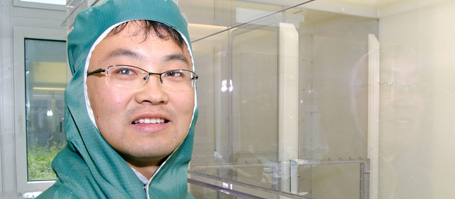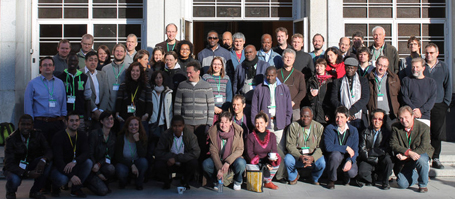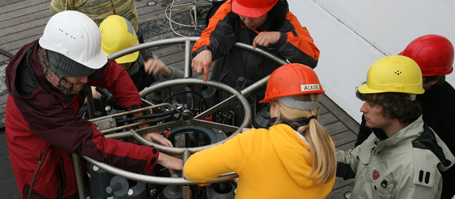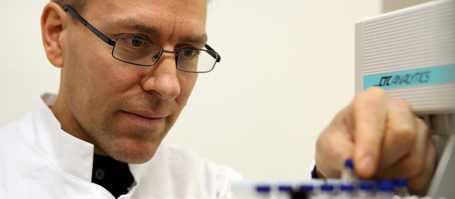The new way the 31-year-old chemical oceanographer will explore, together with the research group of Professor Martin Frank at GEOMAR, consists of measuring barium isotope ratios. "We want to find out, for example, if these ratios can be used to trace the biological productivity in the upper water layers of the oceans over millions of years," says Dr. Cao. "The analysis of barium isotopes is complicated. So far they have hardly been used as an indicator of climate or environmental reconstruction”, adds his host, Professor Frank. GEOMAR is really an ideal place to carry out this type of project, emphasizes the Humboldt scholar from China: "Here all the analytical tools I need are available. And there are many experienced isotope specialists with whom I can exchange ideas."
Dr. Cao will be able to utilize many of his previous contacts and experiences. He is familiar with many labs and colleagues since he already spent one year in Kiel, from 2010 to 2011, while working on his doctoral thesis. At that time, Dr. Cao investigated, among other things, the silicon isotope ratios of diatoms and water samples of the South China Sea, and also published a paper on this topic together with the colleagues in Kiel. "Already back then we noticed how committed Dr. Cao was to pursue his work and how easily he became an integral part of our team," recalls Professor Frank.
“Thus we have been looking for a way to allow Dr. Cao a return to Kiel after the completion of his doctorate. The Chinese science system also welcomes postdoc experience abroad. A fellowship from the Alexander von Humboldt Foundation is thus an ideal opportunity," says Professor Frank. However, the application process was not an easy task. "These scholarships are highly sought after worldwide, and only a small percentage of applicants actually receives the funding," says Dr. Cao. Despite the competition he was able to convince the selection committee of his work and new project ideas. Even if Dr. Cao already knows Kiel from his first stay, the current situation is still new to him. For the two-year fellowship, he has also brought his wife and one year old son with him. Besides the actual work, trips to the region and all over Germany will thus be on the likely agenda in the coming years.
However, what impressed Zhimian Cao most in Kiel during his first stay is the fact that he can see his workplace from his current home whenever the weather allows: "A blue sky like in Kiel does not exist in Xiamen. There, the tropical air is always so wet that a nearly permanent haze prevails" says the Chinese researcher.
Links:
www.humboldt-foundation.de Alexander von Humboldt Foundation
www.geomar.de GEOMAR Helmholtz Centre for Ocean Research Kiel
Contact:
Prof. Dr. Martin Frank,
mfrank@geomar.de
Dr. Andreas Villwock (Communication & Media),
avillwock@geomar.de
Phone: +49-431 600-2802,
…



